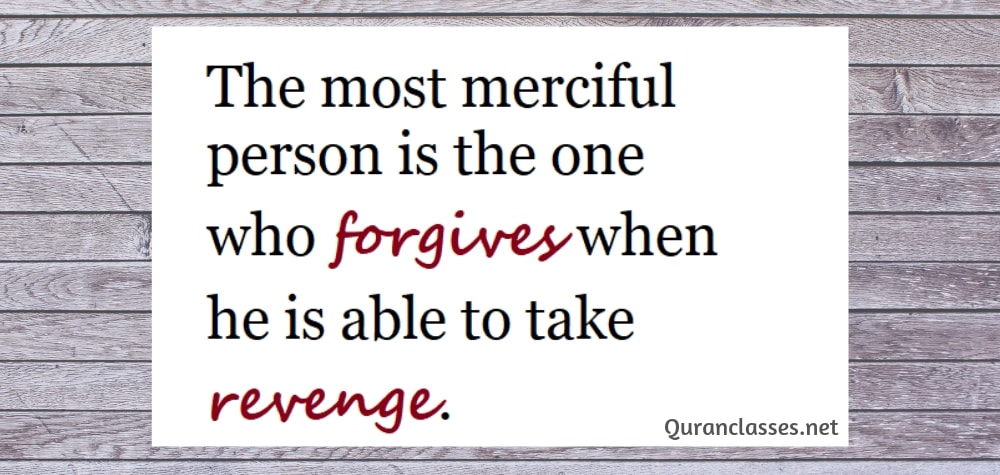Tafseer Surah An-Naziat 79:
January 13, 2019*** Musical Instruments***
January 14, 2019
What is forgiveness?
Generally, forgiveness is a decision to let go of resentment and thoughts of revenge. The act that hurt or offended you might always remain a part of your life, but forgiveness can lessen its grip on you and help you focus on other, more positive parts of your life. Forgiveness can even lead to feelings of understanding, empathy and compassion for the one who hurt you.
Forgiveness doesn’t mean that you deny the other person’s responsibility for hurting you, and it doesn’t minimize or justify the wrong. You can forgive the person without excusing the act. Forgiveness brings a kind of peace that helps you go on with life.
What are the benefits of forgiving someone?
Letting go of grudges and bitterness can make way for happiness, health and peace. Forgiveness can lead to:
Healthier relationships
Greater spiritual and psychological well-being
Less anxiety, stress and hostility
Lower blood pressure
Fewer symptoms of depression
Stronger immune system
Improved heart health
Higher self-esteem
Why is it so easy to hold a grudge?
When you’re hurt by someone you love and trust, you might become angry, sad or confused. If you dwell on hurtful events or situations, grudges filled with resentment, vengeance and hostility can take root. If you allow negative feelings to crowd out positive feelings, you might find yourself swallowed up by your own bitterness or sense of injustice.
What are the effects of holding a grudge?
If you’re unforgiving, you might:
Bring anger and bitterness into every relationship and new experience
Become so wrapped up in the wrong that you can’t enjoy the present
Become depressed or anxious
Feel that your life lacks meaning or purpose, or that you’re at odds with your spiritual beliefs
Lose valuable and enriching connectedness with others
How do I reach a state of forgiveness?
Forgiveness is a commitment to a process of change. To begin, you might:
Consider the value of forgiveness and its importance in your life at a given time
Reflect on the facts of the situation, how you’ve reacted, and how this combination has affected your life, health and well-being
Actively choose to forgive the person who’s offended you, when you’re ready
Move away from your role as victim and release the control and power the offending person and situation have had in your life
As you let go of grudges, you’ll no longer define your life by how you’ve been hurt. You might even find compassion and understanding.
What if I have to interact with the person who hurt me but I don’t want to?
If you haven’t reached a state of forgiveness, being near the person who hurt you might prompt you to be tense and stressful. To handle these situations:
Remember that you can choose to attend or avoid specific functions and gatherings. If you choose to attend, don’t be surprised by a certain amount of awkwardness and perhaps even more intense feelings.
Respect yourself and do what seems best.
Do your best to keep an open heart and mind. You might find that the experience helps you to move forward with forgiveness.
What if the person I’m forgiving doesn’t change?
Getting another person to change his or her actions, behavior or words isn’t the point of forgiveness. Think of forgiveness more about how it can change your life — by bringing you peace, happiness, and emotional and spiritual healing. Forgiveness can take away the power the other person continues to wield in your life.



